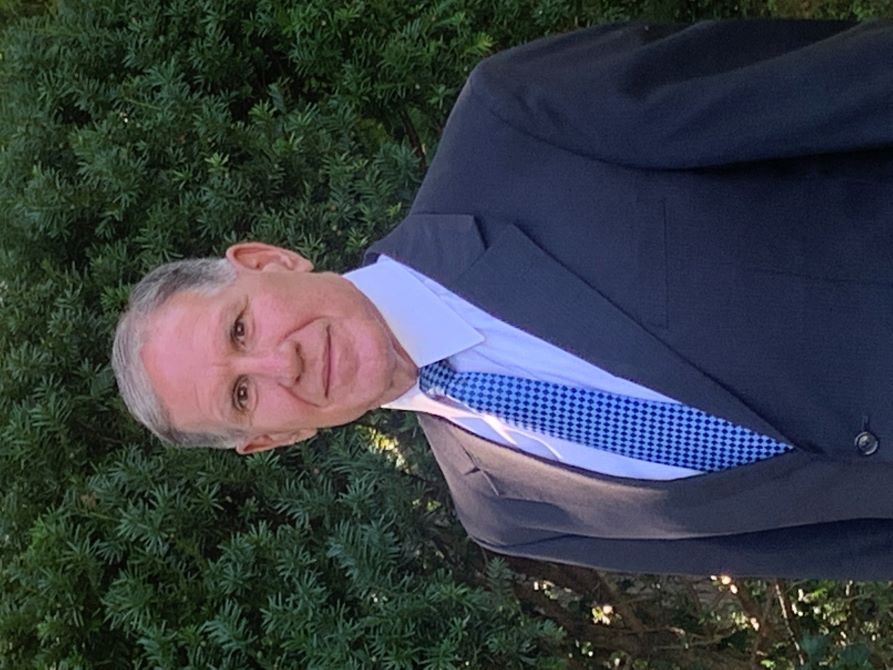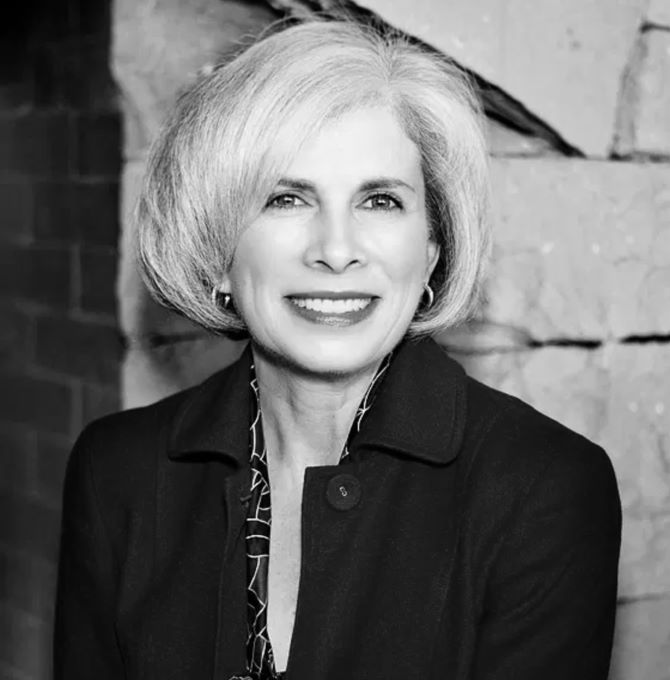We all seek a fulfilling career. That can mean different things to different people. For those in younger generations – such as millennials, Gen Z or those straddling both worlds (‘Zillennials’), – finding a role that’s challenging, rewarding and balanced is paramount. Potentially, IR can be all these things. Traditionally, however, the role has been less popular among younger people.
According to the latest IR Magazine annual survey, based on the responses of more than 820 IR professionals, 34 percent of practitioners fall within the 45-54 age bracket, 32 percent are aged between 35 and 44 and less than 10 percent are under 30.
Given that Gen Z spans those born between 1996 and 2010, and millennials from 1982 to 1996, it’s clear the industry isn’t exactly teeming with youngsters. Despite that, all signs point to the IR landscape swiftly transforming, signaling a growing need for fresh faces in the field.
And if you are wondering why that is, the answer perhaps lies at the heart of the capital market’s evolution. As markets become more complex and investors seek more sophisticated information, there is growing demand for diverse perspectives, adaptable minds and innovative approaches.
An attractive path
‘The attraction of IR is that it provides an opportunity for students to use all the skills they have learned at business school: accounting, equity analysis, marketing, data analytics and more,’ says Professor Anthony Palma, who is a member of the faculty of the Fordham University School of Business and Fordham University School of Law in New York.

As part of the investor relations course within the university’s master of finance program, Palma teaches a wide range of subjects including IR, global corporate governance & compliance and business ethics, among others. He says he notices a growing interest among younger people in pursuing careers in this field compared with previously.
‘Since I began offering the IR course at the Gabelli Business School, more and more students are coming to me and asking, What is IR?,’ Palma adds.
Smooch Repovich Rosenberg, founder and CEO of the global executive search firm Smooch Unplugged, says the time has finally come when younger generations are showing a growing interest.
‘This is an initiative I have been working on for years: to lure younger professionals into IR at an earlier point in their career,’ she explains. ‘I do see the upside potential for successful careers that is unforeseen by the under-30 crowd.’
Palma believes the field’s growing allure is down to IR’s encompassing exposure and promising career trajectories. ‘IROs have to know everything about a company, its competitors and the marketplace it operates in,’ he explains. ‘There is also an exciting social aspect to the role, meeting investors, global investor conferences and so forth.’

Joseph Underwood, investor relations manager at the Tennessee-headquartered retail chain Tractor Supply Company, agrees. He says a role in IR represents a great opportunity to learn.
‘The world of IR is so different from a lot of other functions within a retail organization,’ he says. ‘Understanding the ins and outs of what goes into stock performance, valuation of the stock, the financials of the organization, how we convey our message to the outside world and ensure that we’re being great stewards of the culture and great representatives of Tractor Supply is extremely important to me – it’s something I don’t take lightly.’
Underwood, born in 1998, is a newcomer to the profession, having stepped into the IR manager role at Tractor Supply in September 2023. Prior to that, he spent five years at the firm working in supply-chain management roles. He notes that the opportunities and development that come with a role in IR are two of the factors that convinced him to accept the offer.

For Simone Soldi, born in 1996, a trainee IRO at the European Stability Mechanism (ESM) in Luxembourg, IR was a choice from the beginning. Interestingly, he says his decision to work in IR was borne out of a commitment to overcome his limits.
At a young age, Soldi had a ‘phobia of mathematics’, which he approached as a challenge. Eventually, he says working on overcoming that hurdle led to an understanding of the real value of finance and, more importantly, how to deliver the story behind the numbers. ‘Having overcome my early caution around math, I began to see the value of finance and how to communicate this to others,’ Soldi says. ‘Over the past few years, I realized that investor relations was my calling.’
Newbie challenges
Palma defines the key skills and competencies needed by current and future IR professionals as follows: written, verbal and presentation communication skills, plus the ability to understand, analyze data and communicate the company’s story based on it. It’s possible – and very likely – that a junior IR practitioner may lack proficiency in one or more of these areas.
Underwood says that for him, the biggest hurdle was bringing himself up to speed and achieving ‘financial acumen’.
‘In my previous role, although we were very conscious of the financials of the company, it was not something we were working on day to day,’ he explains. ‘We were more focused on the execution side of the business, so that’s been a big learning curve.’
The second challenge Underwood highlights is pace. ‘The role itself is at a different speed, in terms of the expectations around how fast we react within the investment community, how quickly we need to get communication to our internal and external partners,’ he says. He also notes the challenge of having to meet high expectations from his department leader. ‘But they’ve all been great challenges for me,’ he stresses.

For Soldi, the trainee role in funding and IR at ESM was the first step into the profession after university. ‘The ESM is a great place for anyone who wishes to take the first steps into the field of investor relations,’ he says. ‘But this position is a bit different from the role I imagined when I was at my university.
‘[There] we were exposed to the corporate environment more than to the financial and public [aspects]. Sometimes, working at the ESM resulted in challenges as I lacked some knowledge that I needed to catch up with but, in the end, this is what a traineeship is designed for.’
Soldi also points out that navigating a bustling and fast-paced work environment, along with acclimatizing to collaborative teamwork, presented two notable challenges at the start.
‘I was not used to this kind of work environment, which can sometimes be truly busy with the latest financial news on television and information flow between different teams,’ he explains. ‘I found this way of working challenging initially, but eventually I made it through by enhancing my concentration.
‘When I arrived at the ESM, I needed to adapt to teamwork. Unlike time at the university, most of our tasks are not one-person tasks but one-person contributions to a collective endeavor.’
A ‘strategic bet’
What role does the age factor play? Some argue that a specific degree of maturity is essential for effectively handling stakeholder communication. Most would agree that maturity is a byproduct of experience, and experience typically comes with age. But others think the profession is ready for rejuvenation and, for them, age does not matter. Either way, it may take a while before young IR professionals manage to get a foot in the door.

Both Soldi and Underwood say they have not personally encountered difficulties in securing their first role in IR, but the fact that some may have does not surprise them.
‘I had the example of a speaker who came to my university and was asked about jobs in investor relations,’ Soldi recalls. ‘We were told [his] company would not consider people under the age of 26. The reason was the association between age and experience.’
Underwood says his IR manager has been trusting him with a variety of tasks, exposing him to a lot of different situations and notes that ‘great companies make strategic bets on people and then work to develop and retain those people over time.
‘I’m not going to say it’s the right move for everyone: the situation has to be right but, as long as the company is set up with a strong leader, who is a developer of talent and who has experience in that role, I think taking a calculated risk on someone who might be younger and new to the IR profession can eventually pay off with larger dividends down the road.’
From an academic perspective, Palma says that in his conversations with hiring managers he finds himself explaining what younger generations can bring to the table. ‘I tell hiring managers that today’s graduates are better prepared, have obtained the skills and are more prepared to meet the future challenges companies face today,’ he notes.
Repovich Rosenberg encourages taking a chance and hiring based on intrinsic qualities. ‘Take the risk and hire on DNA,’ she suggests. ‘Not everyone is educated in a perfect manner and not everyone comes equipped with 100 percent of the technical competencies. So with younger people, if you hire the DNA and that person is smart, hardworking, goal-oriented, eager to learn and intellectually curious, then take the risk.
‘We’ve got to start taking risks and investing a little bit more – not necessarily financially, but intellectually and emotionally – to help young people.’
Passing the torch
In a heartfelt speech at the IR Magazine Awards – US last year, Jane MacCahon, winner of the lifetime achievement prize, invited fellow IROs to ‘pass it on’.
‘We have time, talent and treasure. Pass it on, because that’s not going to do anything but strengthen our capital markets for a long time in the future,’ she said, addressing the audience.

Assuming you are ready to hire a Gen Z, millennial or Zillennial IR practitioner, what can you do to make sure your mentoring is the best it can be? According to Soldi, mentors must tailor their qualities to suit the varied learning styles of mentees.
‘Some learn better by doing, others by learning from theory. I liked the mixture,’ he says. ‘At the ESM I was involved in practical task delivery. Patience is as vital as dedication. In this job, aligning with the company narrative is essential so the dedication and time a mentor shows to mentees will ensure a good outcome.’
Underwood highlights patience and the need for mentors to see the broader picture in IR, pushing mentees beyond their comfort zones. Repovich Rosenberg, meanwhile, argues that younger generations don’t benefit from the same mentorship that was available in the past.
‘A great mentor needs to make the intellectual commitment to help people be the best they can be,’ she says. ‘You can call it training, development or being the best boss you can be – you can put any nomenclature that you want to it. But I think that notion of tucking a junior person under your wing so that he or she can really learn from the ground up is important.
‘Yes, it takes more time on the boss’ part but, honestly, if you don’t invest in your people, you can’t expect them to become high performers. And at the end of the day, isn’t that what we all want to have in our teams?’






